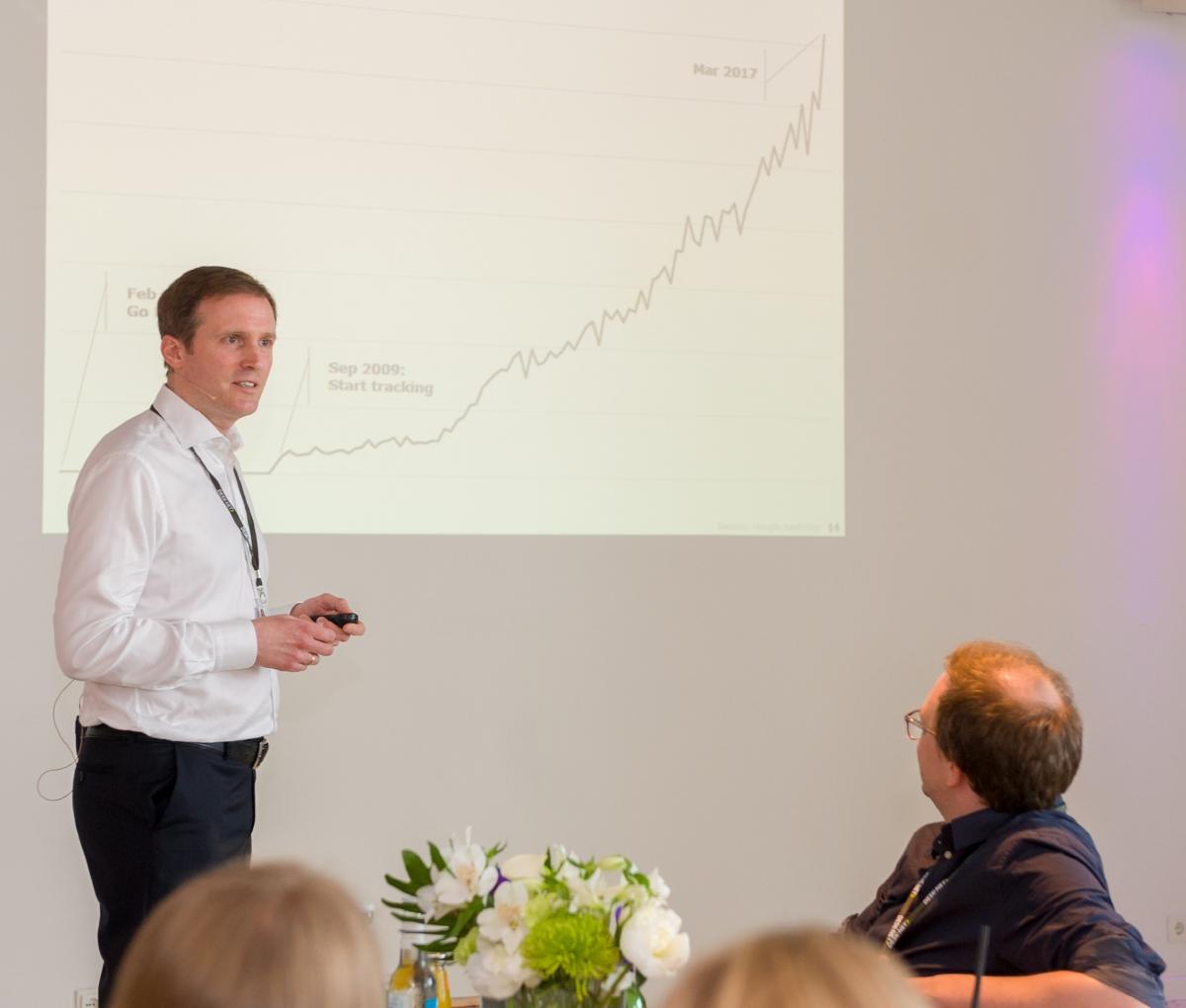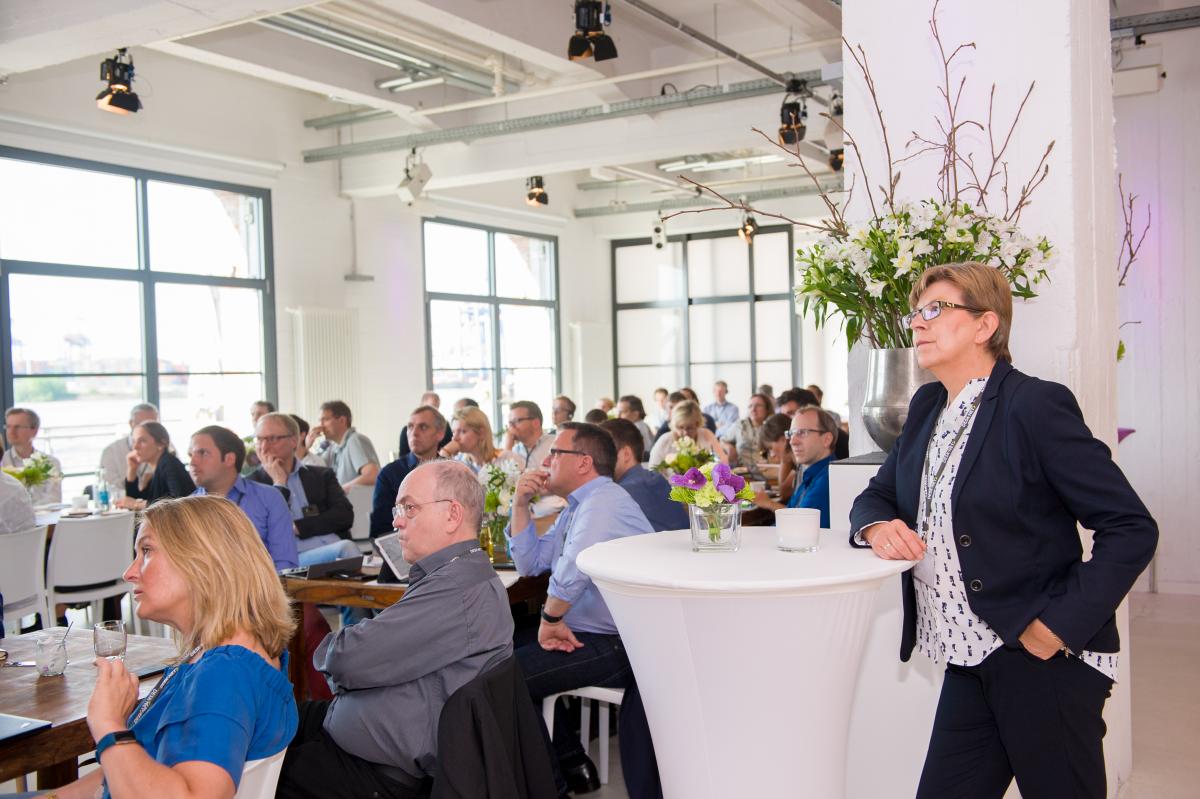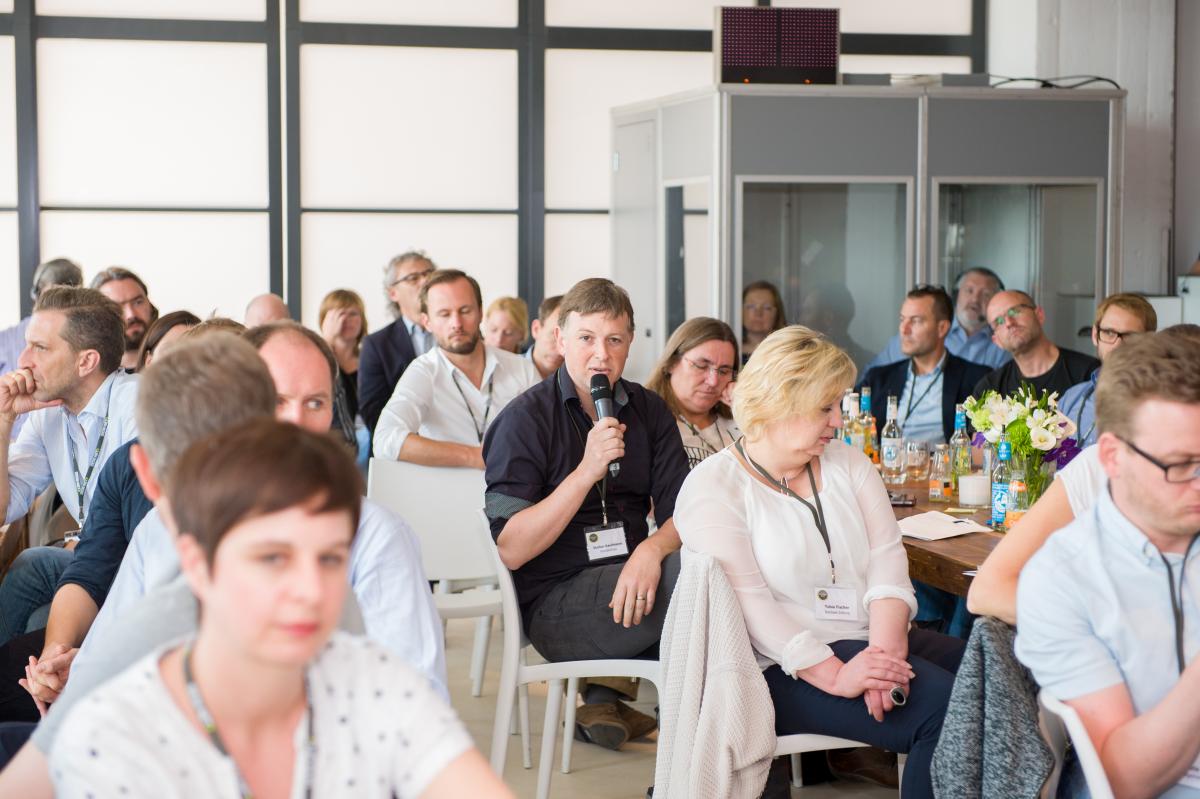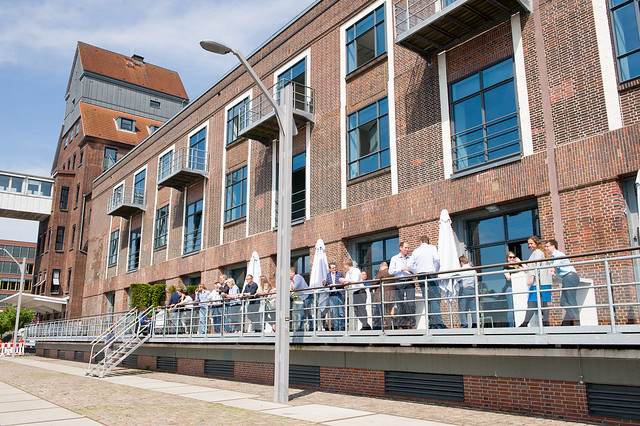State of the (Desk-Net) Nation: Editorial Days 2017

Time may not be so kind to you or I, but as Desk-Net's workflow software gets more mature, it is becoming more wrinkle-free.
 That was the message from Desk-Net founder Matthias Kretschmer at Editorial Days 2017 as he quietly acknowledged that it is now 10 years since the company was founded - “not that it feels like it”.
That was the message from Desk-Net founder Matthias Kretschmer at Editorial Days 2017 as he quietly acknowledged that it is now 10 years since the company was founded - “not that it feels like it”.
And indeed Desk-Net is defying the ageing process with a constant evolution of its scheduling and workflow capacity.
You don't have to look far for the secret of its eternal youth either – the answer is all around at Editorial Days as customers from the very beginning are joined by the latest recruits to swap notes and share tips on managing news flow
 Engaging with customers and their needs is the lifeblood of Desk-Net and means that every year's Editorial Days is a reflection of how publishing is changing for news providers and corporate newsrooms alike.
Engaging with customers and their needs is the lifeblood of Desk-Net and means that every year's Editorial Days is a reflection of how publishing is changing for news providers and corporate newsrooms alike.
The line up of speakers illustrated that perfectly with representatives from the regional press (Main-Post), national press (20 minutes), one of the world's best-known magazine publishers (Time Inc UK), corporate publishers (Mayo Clinic), and explanations of the key messaging tools having an impact on news flow.
In parallel were breakout sessions on content marketing and corporate communications.
All together the topics covered amounted to a comprehensive sweep across publishing issues of the moment from workflow to cost-analysis, editorial reactivity to consumer engagement.
Desk-Net is growing and adapting with its users. Not just in size, although a year-on-year look at active sessions saw a 34 per cent increase, and user profile figures were up 44 per cent over the  year, but also in scope and reach.
year, but also in scope and reach.
Dozens of new customers such as WirtschaftsWoche, Ringier/Axel Springer, Swisscom, and the Oxford Eagle of Mississippi have joined the fold. Each new face brings a growing diversity of needs.
Magazine and speciality publishers feature largely, as do corporate communications. With them the business is becoming faster with more stories per platform, and per day.
Many clients are now looking at a daily story output in the hundreds. Where magazine publishing once moved to a less hectic rhythm than daily press it now moves at the speed of online and has to keep up with a growing number of platforms.
Across the board there is demand for more long-term planning and coordination across titles. Duplication of effort and budget is no longer an affordable luxury.
With that realisation comes the demand for total transparency about who is doing  what, when, and when they are free for the next task.
what, when, and when they are free for the next task.
Together these factors are changing the way publishing works, and breaking down the silos where information has traditionally lived.
Instead information is being tagged by topic, and with its own statistics about how well it serves its purpose and achieves the company's goals.
As speed and collaboration gather pace Desk-Net is acquiring more short-term management capabilities including integration with the key chat tools of the moment such as Slack (of which more later).
There is increased integration with workflow and tasking across multiple systems.
People are no longer working in traditional systems, especially legacy monoliths”, explained Matthias Kretschmer. “We're even seeing big News Corp titles running on WordPress: hence the forthcoming WordPress plugin. There is a Drupal module, and we are building plugin features for our partners.”
Plugins are a key part of Desk-Net's interoperability with other tools, data tagging is another (as demonstrated by Time Inc's presentation) with customers needing to know how many stories they have published, when, and where, but also how that compares to plans and predictions and what the cost and returns are at each stage.
 Keeping up with these demands has also resulted in an auto-refresh feature being rolled out for Desk-Net, meaning you can be sure of having the latest version in front of you as it is updated by contributors.
Keeping up with these demands has also resulted in an auto-refresh feature being rolled out for Desk-Net, meaning you can be sure of having the latest version in front of you as it is updated by contributors.
Nor is the need for speed the sole overriding concern. With so much more data about content, planning, and costings being integrated there is also the requirement to consider security.
Which is why SAML (Security Assertion Markup Language) single-sign on (SSO) and two-factor authentication, Active Directory integration, and password/login enhancements are all scheduled for roll-out over the next 6 to 24 months.
Matthias showed a host of improvements around interface and integration, but in the two biggest topics of interest for publishers of all types remain “the overlapping areas of usability and the quest to make better use of existing data”.
Ten years may have passed but the quest is as fresh as ever.



